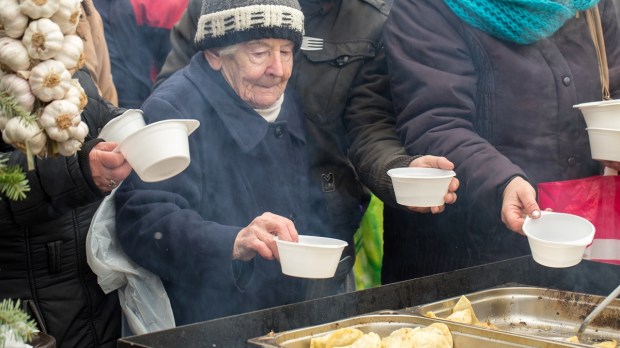Lenten Campaign 2025
This content is free of charge, as are all our articles.
Support us with a donation that is tax-deductible and enable us to continue to reach millions of readers.
There are many spiritual lessons hidden within the Lord’s Prayer, such as our obligation to feed the poor.
Feeding the hungry is one of the hallmarks of Jesus’ Gospel message, and one that makes its way into the prayer that he taught his apostles to pray.
Give us our daily bread
The Catechism of the Catholic Church explains this hidden lesson when discussing the petition, “Give us this day our daily bread”:
But the presence of those who hunger because they lack bread opens up another profound meaning of this petition. The drama of hunger in the world calls Christians who pray sincerely to exercise responsibility toward their brethren, both in their personal behavior and in their solidarity with the human family. This petition of the Lord’s Prayer cannot be isolated from the parables of the poor man Lazarus and of the Last Judgment.
CCC 2831
The Catechism continues by highlighting the need to seek justice in the world, especially for the poor:
As leaven in the dough, the newness of the kingdom should make the earth “rise” by the Spirit of Christ. This must be shown by the establishment of justice in personal and social, economic and international relations, without ever forgetting that there are no just structures without people who want to be just.
CCC 2832
Furthermore, the phrase “our bread” should be seen in its truly universal meaning:
“Our” bread is the “one” loaf for the “many.” In the Beatitudes “poverty” is the virtue of sharing: it calls us to communicate and share both material and spiritual goods, not by coercion but out of love, so that the abundance of some may remedy the needs of others.
CCC 2833
The next time you pray the Lord’s Prayer, recall how it should motivate us to feed the hungry and work for justice in the world.



